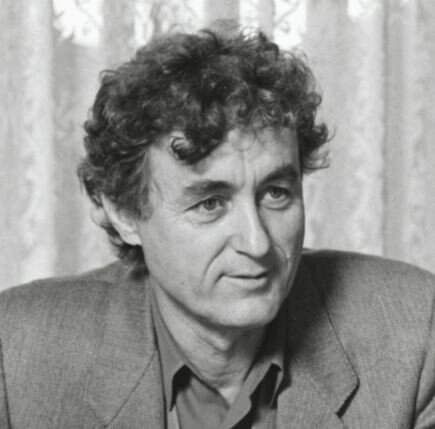| The Integration Website Co-Developing the Noosphere |
| The Integration Website Co-Developing the Noosphere |
 Fritjof CAPRA
Fritjof CAPRA
LIFE
Born 1939, Austria
After receiving his Ph.D. in theoretical physics from the University of Vienna in 1966, Capra did research in particle physics at the University of Paris (1966-68), the University of California at Santa Cruz (1968-70), the Stanford Linear Accelerator Center (1970), Imperial College, University of London (1971-74), and the Lawrence Berkeley Laboratory at the University of California (1975-88). He also taught at U.C. Santa Cruz, U.C. Berkeley, and San Francisco State University.
In addition to his research in physics and systems theory, Capra has been engaged in a systematic examination of the philosophical and social implications of contemporary science for the past 30 years. His books on this subject have been acclaimed internationally, and he has lectured widely to lay and professional audiences in Europe, Asia, and North and South America.
Dr. Capra is on the faculty of Schumacher College, an international center for ecological studies in England
He is cofounder of the Center for Ecoliteracy in Berkeley, California, which promotes ecology and systems thinking in primary and secondary education, and frequently gives management seminars for top executives.
Fritjof Capra lives in Berkeley with his wife and daughter.
P. O. Box 9066
Berkeley, CA 94709
Tel +1.510.525.9191 Fax+1.510.525.9192
(no email...)
THEORY
Living systems are open systems. That means they need a continual flow of energy and matter to stay alive. This is what we do when we breathe.
The spontaneous emergence of new order at points of instability is one of the very hallmarks of life. This is where life's creativity expresses itself, because you have the emergence of something new at a point of instability. This is the basis of all learning, of all development.
His basic views include the conviction that western, sorry, global culture is transitioning nowadays from the modern aristotelic-cartesian paradigm to a postmodern, holistic, integrative paradigm. His whole approach is based on the premise that earlier schools of science falsely attempted to force their subjects into mechanistic, easily quantifiable models, in opposition to the holistic awareness of today's scientific revolutionaries. Systems thinking and fractal geometry replace traditional analytical tools and methods.
In modern science, under the influence of physics, the concept of cause has been reduced to the efficient cause. The modern term "causality" denotes the relationship between the efficient cause and its effect. The question of whether there is, in addition, a final cause reappeared in biology in the debate between mechanists and vitalists. While mechanists hold that all biological phenomena will eventually be explained in terms of the laws of physics and chemistry, vitalists postulate the existence of a nonphysical causal agent directing the life processes that defies mechanistic explanations. Teleology—from the Greek telos ("purpose")—asserts that the causal agent postulated by vitalism is purposeful, that there is purpose and design in nature. According to the new systemic understanding of evolution, the driving force of the unfolding of life is not to be found in the chance events of random mutations, but in life’s inherent tendency to create novelty through the spontaneous emergence of increasing complexity and order.
In biological terms, this means abandoning the traditional emphasis on the cell as a fundamental building block of life. Instead, the modern cell emerges as a symbiotic partnership between a number of formerly independent entities, now playing the roles of nucleus, mitochondria, ribosomes, chloroplasts, and so forth. Indeed, the emphasis on cooperation is a keynote of Capra's vision. This means a transition from biosphere to noosphere, as Teilhard called it.
The Gaia hypothesis, in which Earth itself is seen as a single self-regulating biological entity, plays a large role in his vision. Likewise, he believes that the Darwinian vision of struggle for survival aided by chance mutations is refuted by the discovery that microorganisms can in effect cooperate by passing genetic material from one to another across species lines -a discovery that he feels calls into question the entire notion of separate species. But Capra pushes his thesis too eagerly and with too little attention to some scientific details.
WORKS
Dr. Capra is the author of four international bestsellers:
The Tao of Physics (1975), The Turning Point (1982), Uncommon Wisdom (1988), and The Web of Life (1996).
He coauthored Green Politics (1984), Belonging to the Universe (1991), and EcoManagement (1993), and coedited Steering Business Toward Sustainability (1995).
His most recent book, The Hidden Connections, will be published in March 2002.
Capra also cowrote the screenplay for Mindwalk (1990), a film based on his books that starred Liv Ullmann, Sam Waterston, and John Heard, and was created and directed by his brother, Bernt Capra.
LINKS
The Systems view of Life
The emerging of a New Culture
Schumacher College, Darlington, Dever, UK
The Purpose of Nature
Intro - Homepage - Spirituality - Visionary Gallery - Feedback